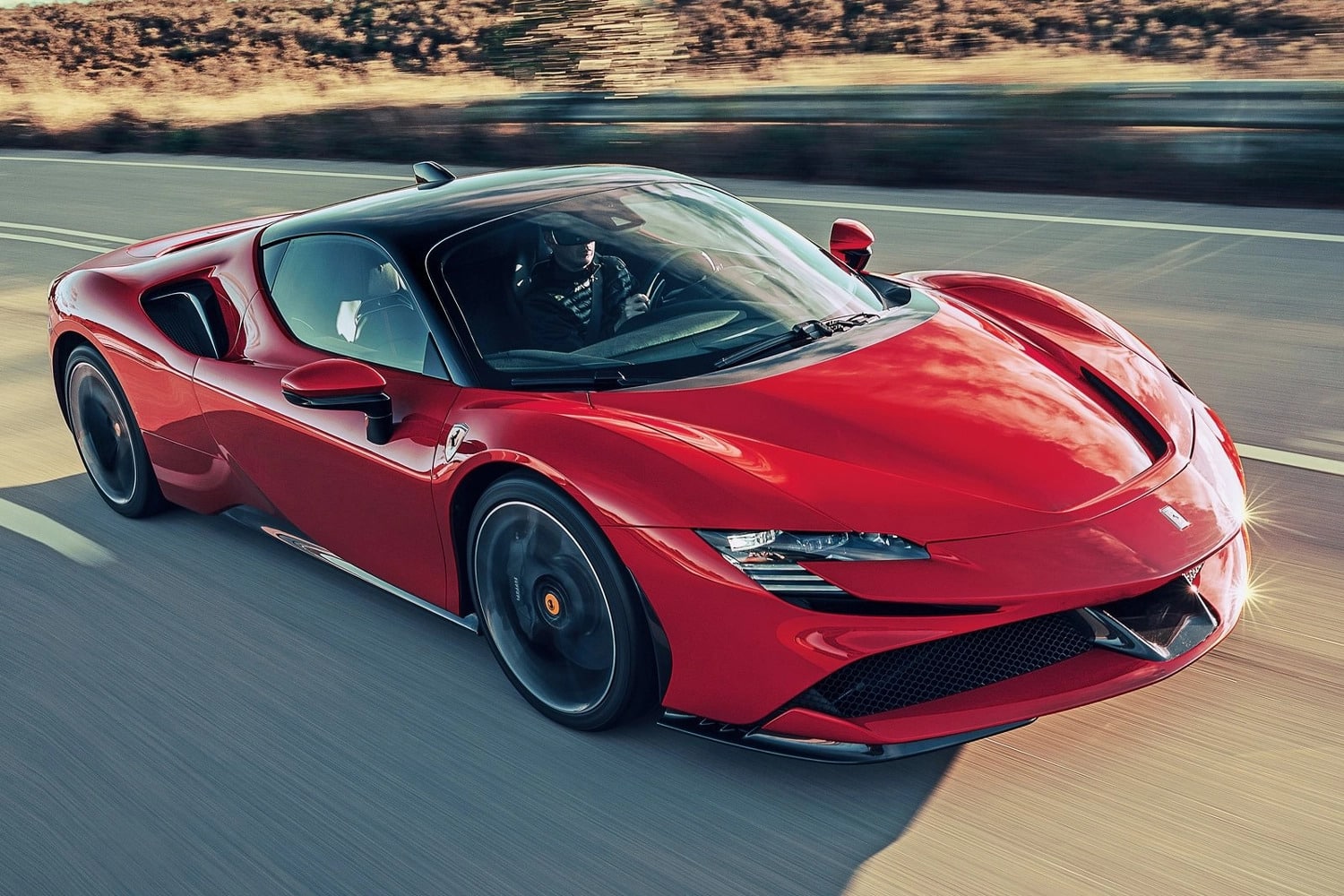[vc_row njt-role=”people-in-the-roles” njt-role-user-roles=”administrator,editor,author,armember”][vc_column][vc_column_text]
The European Parliament voted this Tuesday, February 14, to end the use of internal combustion engines. All new light vehicles powered by gasoline, diesel or hybrids will no longer be allowed to be sold in the EU after 2035.
This Tuesday, February 14, the European Parliament gave its approval, via a final vote, to the draft regulation that will put an end to the sale of new vehicles with combustion engines by 2035. This text, considered emblematic for Europe’s climate objectives, was adopted with 340 votes in favor, 279 against and 21 abstentions, despite the opposition of the European Parliament’s main party, the EPP (right).
“We have reached a historic agreement, which reconciles the car and the climate, two enemy brothers”, said a delighted Green MEP Karima Delli, chair of the Transport Committee.
But the decision also provoked the discontent of some MEPs. “The car industry generates 12.5 million jobs in Europe. We cannot allow ourselves to play sorcerer’s apprentice with this sector”, said French centrist Nathalie Colin-Oesterlé, who opposed the text. “The transition must be done with and not against this sector, so as not to generate human and social dramas”, she said.
Carbon emissions reduced to zero
From 2035, CO2 emissions from new cars and vans in Europe will have to be reduced to zero, which means that there will be no more sales of new gasoline, diesel or hybrid (gasoline-electric) cars and vans in the European Union, and that they will be replaced by 100% electric vehicles. This regulation, proposed by the European Commission in July 2021, was negotiated between the EU Parliament and Council, which reached an agreement in October 2022. To enter into force, the text must be formally approved by the Council (representing the member states).
This is the first agreement in the EU’s “Fit for 55” climate package, which aims to reduce the EU’s greenhouse gas emissions by at least 55% by 2030 compared to 1990. This agreement endorses the target of reducing CO2 emissions by 55% from 2021 for new cars and 50% for new vans by 2030.
Derogation clause
The text grants an exemption until the end of 2035 to niche manufacturers or those producing less than 10,000 vehicles per year, allowing them to continue to use combustion engines. This derogation, sometimes called the “Ferrari amendment”, is one year longer than the rest of the industry and will benefit luxury brands in particular.
Under pressure from several countries, including Germany, the text envisages the possibility of a future authorization for alternative technologies, such as synthetic fuels (e-fuels) or plug-in hybrid engines, if they can completely eliminate greenhouse gas emissions from vehicles.
For their part, carmakers say they are ready. “Our industry is ready to take up the challenge of providing zero-emission vehicles”, Sigrid de Vries, director general of the European Automobile Manufacturers’ Association (ACEA), said in a statement. “All efforts and investments of the automotive industry are geared towards zero-emission mobility. It is essential that all EU policies and regulations align with and support this goal”, she added.
Read also >Automobile : Audi Active sphere, the new all-in-one concept car
Featured photo : ©Press[/vc_column_text][/vc_column][/vc_row][vc_row njt-role=”not-logged-in”][vc_column][vc_column_text]
The European Parliament voted this Tuesday, February 14, to end the use of internal combustion engines. All new light vehicles powered by gasoline, diesel or hybrids will no longer be allowed to be sold in the EU after 2035.
This Tuesday, February 14, the European Parliament gave its approval, via a final vote, to the draft regulation that will put an end to the sale of new vehicles with combustion engines by 2035. This text, considered emblematic for Europe’s climate objectives, was adopted with 340 votes in favor, 279 against and 21 abstentions, despite the opposition of the European Parliament’s main party, the EPP (right).
“We have reached a historic agreement, which reconciles the car and the climate, two enemy brothers”, said a delighted Green MEP Karima Delli, chair of the Transport Committee.
But the decision also provoked the discontent of some MEPs. “The car industry generates 12.5 million jobs in Europe. We cannot allow ourselves to play sorcerer’s apprentice with this sector”, said French centrist Nathalie Colin-Oesterlé, who opposed the text. “The transition must be done with and not against this sector, so as not to generate human and social dramas”, she said.
Carbon emissions reduced to zero
[…][/vc_column_text][vc_cta h2=”This article is reserved for subscribers.” h2_font_container=”tag:h2|font_size:16|text_align:left” h2_use_theme_fonts=”yes” h4=”Subscribe now !” h4_font_container=”tag:h2|font_size:32|text_align:left|line_height:bas” h4_use_theme_fonts=”yes” txt_align=”center” color=”black” add_button=”right” btn_title=”I SUBSCRIBE !” btn_color=”danger” btn_size=”lg” btn_align=”center” use_custom_fonts_h2=”true” use_custom_fonts_h4=”true” btn_button_block=”true” btn_custom_onclick=”true” btn_link=”url:https%3A%2F%2Ftest2023.luxus-plus.com%2Fen%2Fsubscriptions-and-newsletter-special-offer-valid-until-september-30-2020-2-2%2F”]Get unlimited access to all articles and live a new reading experience, preview contents, exclusive newsletters…
Already have an account ? Please log in.[/vc_cta][vc_column_text]Featured photo : ©Press [/vc_column_text][/vc_column][/vc_row][vc_row njt-role=”people-in-the-roles” njt-role-user-roles=”subscriber,customer”][vc_column][vc_column_text]
The European Parliament voted this Tuesday, February 14, to end the use of internal combustion engines. All new light vehicles powered by gasoline, diesel or hybrids will no longer be allowed to be sold in the EU after 2035.
This Tuesday, February 14, the European Parliament gave its approval, via a final vote, to the draft regulation that will put an end to the sale of new vehicles with combustion engines by 2035. This text, considered emblematic for Europe’s climate objectives, was adopted with 340 votes in favor, 279 against and 21 abstentions, despite the opposition of the European Parliament’s main party, the EPP (right).
“We have reached a historic agreement, which reconciles the car and the climate, two enemy brothers”, said a delighted Green MEP Karima Delli, chair of the Transport Committee.
But the decision also provoked the discontent of some MEPs. “The car industry generates 12.5 million jobs in Europe. We cannot allow ourselves to play sorcerer’s apprentice with this sector”, said French centrist Nathalie Colin-Oesterlé, who opposed the text. “The transition must be done with and not against this sector, so as not to generate human and social dramas”, she said.
Carbon emissions reduced to zero
[…][/vc_column_text][vc_cta h2=”This article is reserved for subscribers.” h2_font_container=”tag:h2|font_size:16|text_align:left” h2_use_theme_fonts=”yes” h4=”Subscribe now !” h4_font_container=”tag:h2|font_size:32|text_align:left|line_height:bas” h4_use_theme_fonts=”yes” txt_align=”center” color=”black” add_button=”right” btn_title=”I SUBSCRIBE !” btn_color=”danger” btn_size=”lg” btn_align=”center” use_custom_fonts_h2=”true” use_custom_fonts_h4=”true” btn_button_block=”true” btn_custom_onclick=”true” btn_link=”url:https%3A%2F%2Ftest2023.luxus-plus.com%2Fen%2Fsubscriptions-and-newsletter-special-offer-valid-until-september-30-2020-2-2%2F”]Get unlimited access to all articles and live a new reading experience, preview contents, exclusive newsletters…
Already have an account ? Please log in.[/vc_cta][vc_column_text]Featured photo : ©Press[/vc_column_text][/vc_column][/vc_row][vc_row njt-role=”people-in-the-roles” njt-role-user-roles=”subscriber,customer”][vc_column][vc_column_text]










